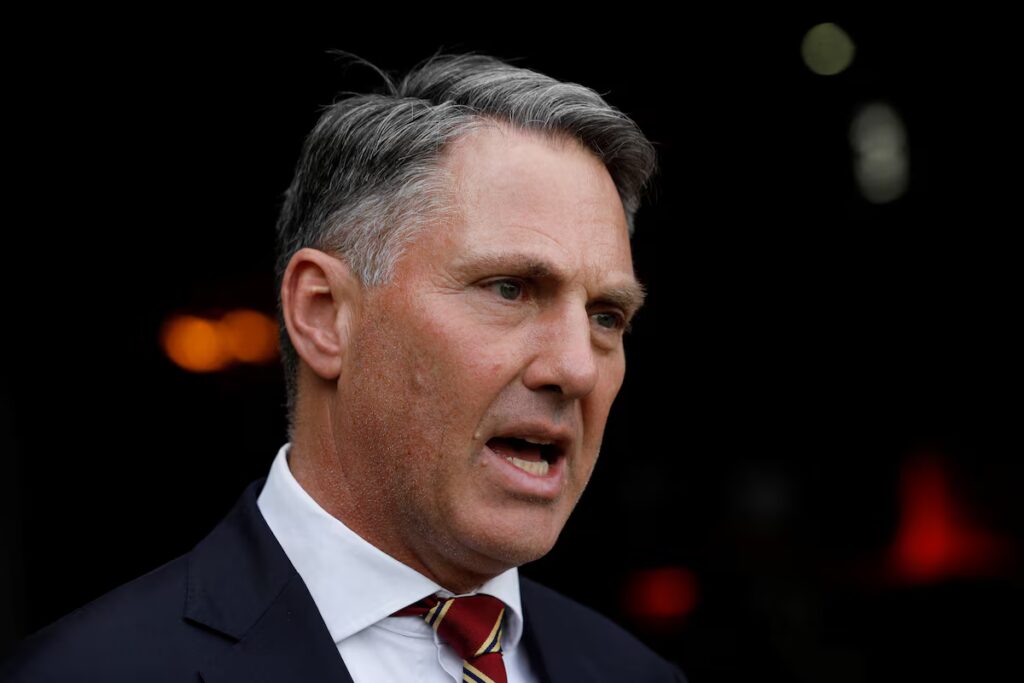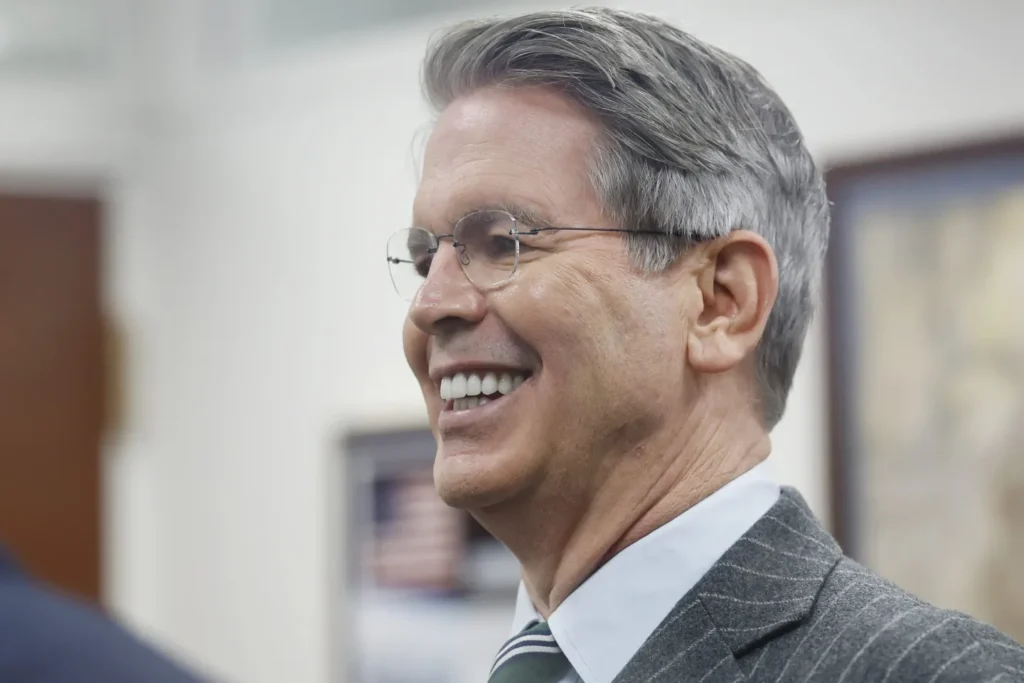In the midst of escalating trade tensions with the United States, China has reached out to Australia with an invitation to form a united front against Donald Trump’s tariff policies. The offer, however, was swiftly rejected by Australian officials who made it clear they would not be aligning with Beijing on trade matters despite both nations facing US tariffs.
The diplomatic exchange comes after President Trump dramatically raised tariffs on Chinese imports to 125 per cent on Wednesday, while simultaneously pausing higher duties on most other countries and reducing his “reciprocal tariffs” to 10 per cent.
Beijing’s Call for International Solidarity
Chinese Ambassador to Australia Xiao Qian made the overture in an opinion piece published in the Sydney Morning Herald on Thursday. In his article, Xiao argued that the only effective response to what he termed “bullying behaviour of the US” was for countries to “jointly resist” such unilateral trade actions.
“The international community, including China and Australia, should firmly say no to unilateralism and protectionism, join hands to defend the multilateral trading system, safeguard a fair and free trading environment,” the ambassador wrote, extending a direct invitation to Australia.

Xiao emphasised China’s readiness to “join hands with Australia and the international community” to address global trade challenges, calling for countries to “resolutely uphold international equity and justice” and maintain an “open and co-operative international environment.”
Australia’s Firm Rejection
Australia’s response to China’s proposition was unambiguous. Defence Minister Richard Marles categorically dismissed the idea of making “common cause” with China, despite Australia itself being subject to a 10 per cent tariff on its exports to the United States.
“We’re not about to make common cause with China, that’s not what’s going to happen here,” Marles told 9News in a decisive rebuff of the Chinese proposal. “I don’t think we’ll be holding China’s hand.”

The Defence Minister clarified that while Australia does not want to see a trade war between America and China, the country’s focus would remain on “diversifying our trade” rather than forming alliances against American trade policies.
Prime Minister Reinforces Independent Stance
Prime Minister Anthony Albanese reinforced Australia’s position during a Thursday press conference, stating firmly that Australia “will speak for ourselves” on matters of international trade. When directly questioned about China’s offer to join forces, Albanese emphasised Australia’s commitment to free and fair trade principles.
“Australia’s position is that free and fair trade is good,” the Prime Minister stated, while acknowledging the economic significance of the Australia-China trade relationship.
“Trade represents one in four of Australian jobs and China is by a long distance our major trading partner,” Albanese noted, highlighting that his government had successfully restored “an excess of 20 billion dollars of trade exports to China where there were impediments.”
Trump’s Tariff Strategy Targets China
The diplomatic manoeuvring comes in response to President Trump’s dramatic trade policy announcements. After initially imposing broad tariffs on numerous countries, Trump abruptly changed course on Wednesday, pausing higher tariffs for most nations while specifically intensifying pressure on China.
Trump raised tariffs on Chinese imports to 125 per cent, up from the previous 104 per cent, citing a “lack of respect” after Beijing matched earlier US tariffs. China responded with yet another escalation on Thursday, increasing its tariffs on all US imports to 84 per cent.
“Based on the lack of respect that China has shown to the World’s Markets, I am hereby raising the Tariff charged to China by the United States of America to 125 per cent, effective immediately,” Trump wrote on his Truth Social platform. “At some point, hopefully in the near future, China will realise that the days of ripping off the USA, and other Countries, is no longer sustainable or acceptable.”
Economic Implications for Australia
The tariff dispute places Australia in a delicate position. China remains Australia’s largest trading partner, receiving almost a third of Australian goods exports, while exports to the United States represent less than 5 per cent of Australia’s total.
The Reserve Bank of Australia has warned that ongoing uncertainty over tariffs and trade restrictions between the US and other major economies could have a chilling effect on business investment and household spending decisions in Australia.
Despite being hit with a 10 per cent tariff on goods imported to the US, which Prime Minister Albanese described as having “no basis in logic,” the Australian government has confirmed it will not retaliate against its security ally.
Australia’s Strategic Trade Diversification
Rather than aligning with China against US trade policies, Australian officials have emphasised their commitment to building economic resilience through trade diversification. Deputy Prime Minister Richard Marles specifically mentioned strengthening trade ties with the European Union, Indonesia, India, Britain and the Middle East as part of this strategy.
“We are pursuing Australia’s national interests and diversifying our trade around the world,” Marles told Sky News, underscoring Australia’s determination to chart its own economic course rather than becoming entangled in the US-China trade dispute.
US Claims Strategic Victory
Meanwhile, US Treasury Secretary Scott Bessent portrayed the dramatic shift in tariff policy as part of a calculated strategy. Speaking at a White House press conference, Bessent claimed the abrupt changes were “Trump’s strategy all along.”

“You might even say that he goaded China into a bad position,” Bessent stated. “They responded. They have shown themselves to the world to be the bad actor.”
Bessent indicated that while the US had taken a hard line with China, it remained willing to cooperate with trading partners who did not retaliate against American tariffs.
Balancing Economic and Security Interests
Australia’s rejection of China’s invitation highlights the complex balancing act facing many nations caught between economic relationships with China and security alliances with the United States. As a key US security ally in the Indo-Pacific region, Australia has chosen to maintain its independent trade stance rather than aligning with either major power in the escalating trade dispute.
The situation underscores the challenges confronting middle powers in navigating the increasingly fraught US-China relationship. While Australia continues to value its substantial economic ties with China, its response to Beijing’s overture demonstrates a clear prioritisation of strategic independence and a commitment to multilateral trade principles rather than bilateral alliances against specific countries.
Ideological Considerations Behind Australia’s Decision
Beyond pure economic calculus, Australia’s swift rejection of China’s offer reflects deeper ideological considerations that shape Canberra’s foreign policy. As a liberal democracy with strong institutional ties to Western allies, Australia’s values alignment with the United States creates a significant barrier to forming strategic partnerships with Beijing on contentious issues.
The Australian government’s position implicitly acknowledges the ideological dimension of the US-China trade dispute, which extends beyond tariffs to encompass competing visions of global economic governance. While avoiding explicitly framing its decision in ideological terms, Australia’s stance signals its preference for a rules-based international order that aligns more closely with Western democratic values than with China’s state-centric economic model.
This ideological underpinning helps explain why Australia would decline China’s offer despite the substantial economic logic of protecting its largest trading relationship. The Albanese government appears to have calculated that the long-term costs of ideological alignment with Beijing—including potential strains in the US-Australia alliance and domestic political backlash—outweigh the short-term economic benefits of joining China’s counter-tariff coalition.
Looking Forward
For now, Australia appears determined to weather the impact of US tariffs while maintaining its own trade policy direction, focusing on diversification rather than retaliation or alignment with China’s counter-measures against the United States. This middle path reflects not just pragmatic economic interests, but also Australia’s position within the broader ideological contest shaping the future of the international order.
